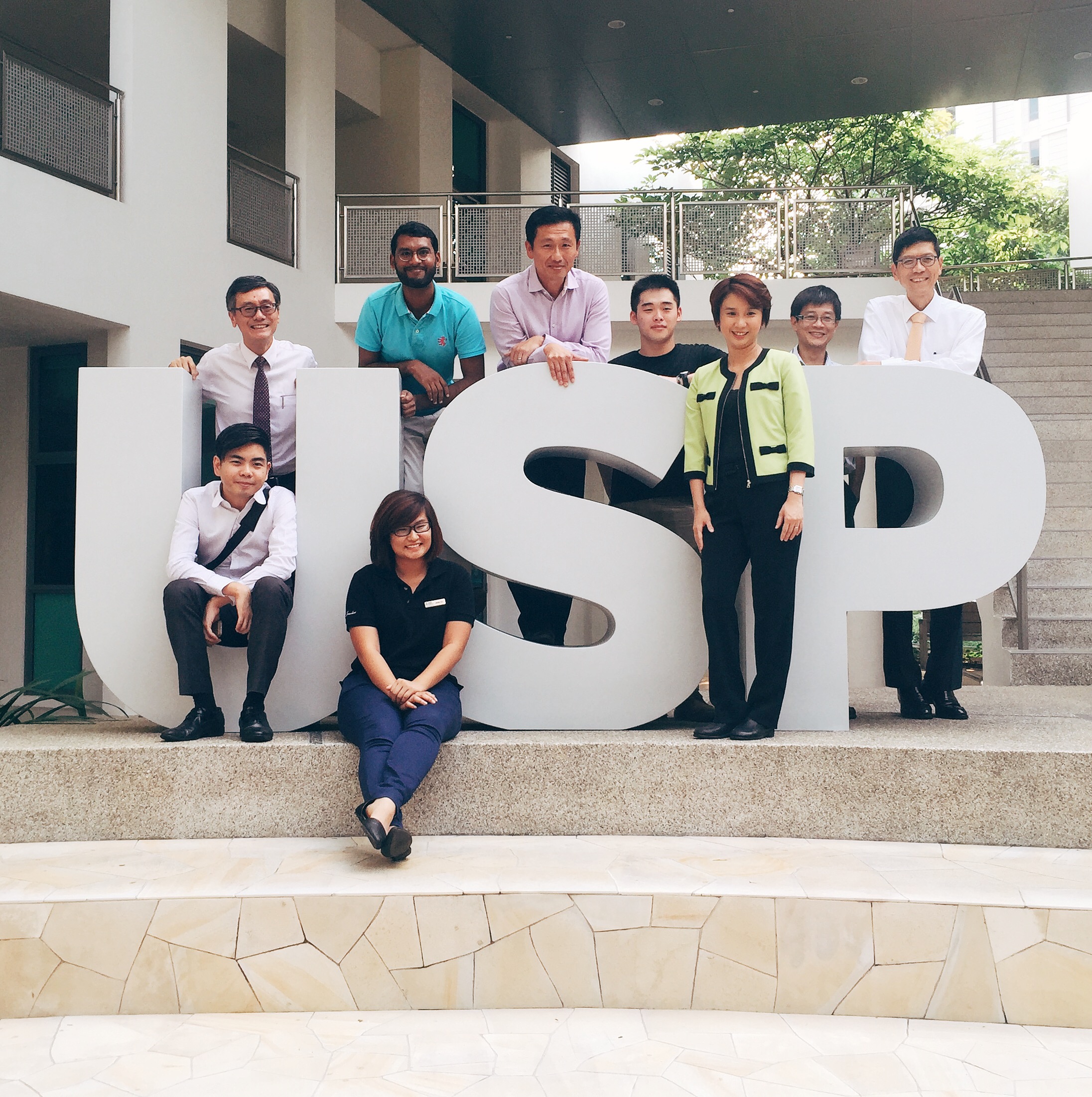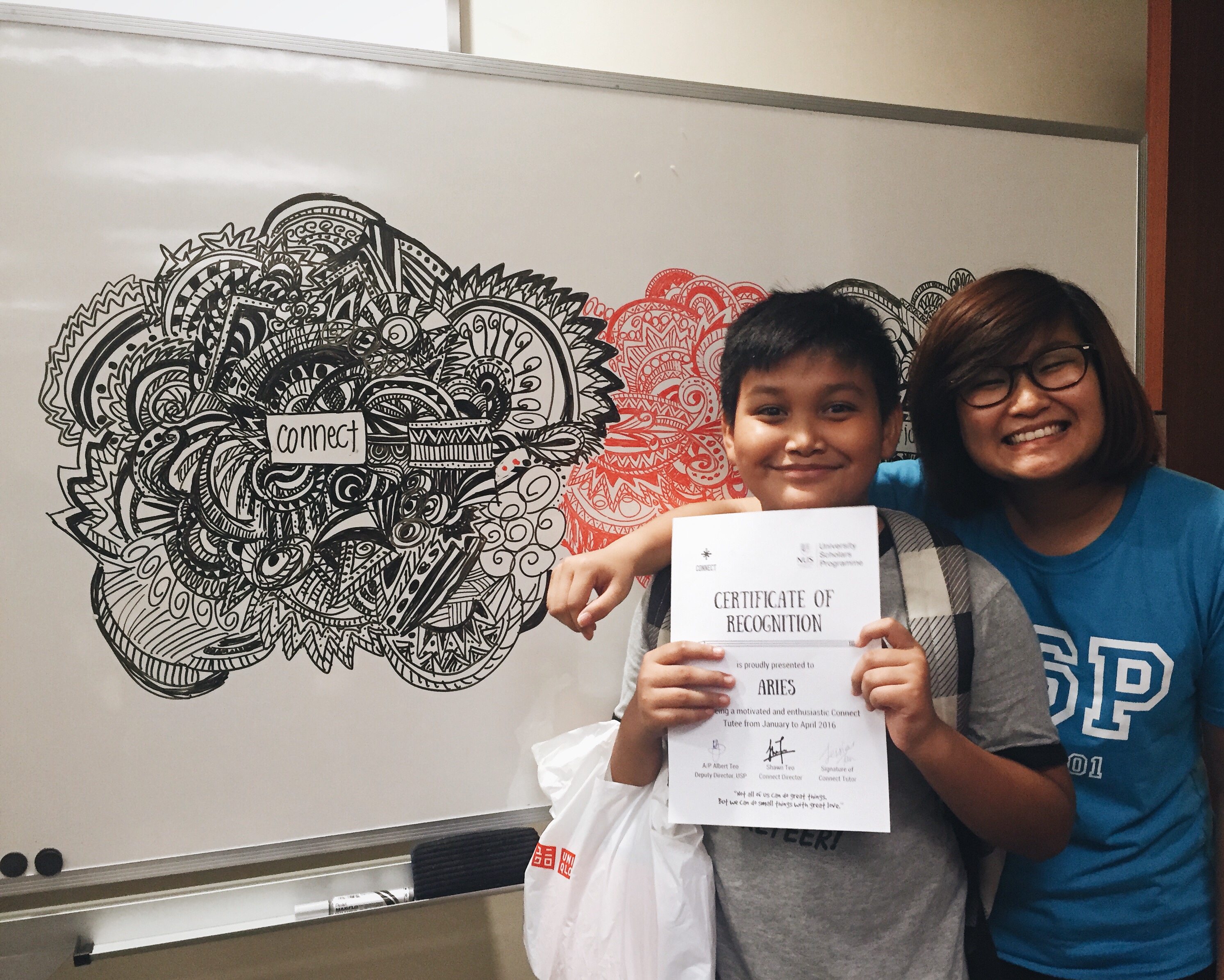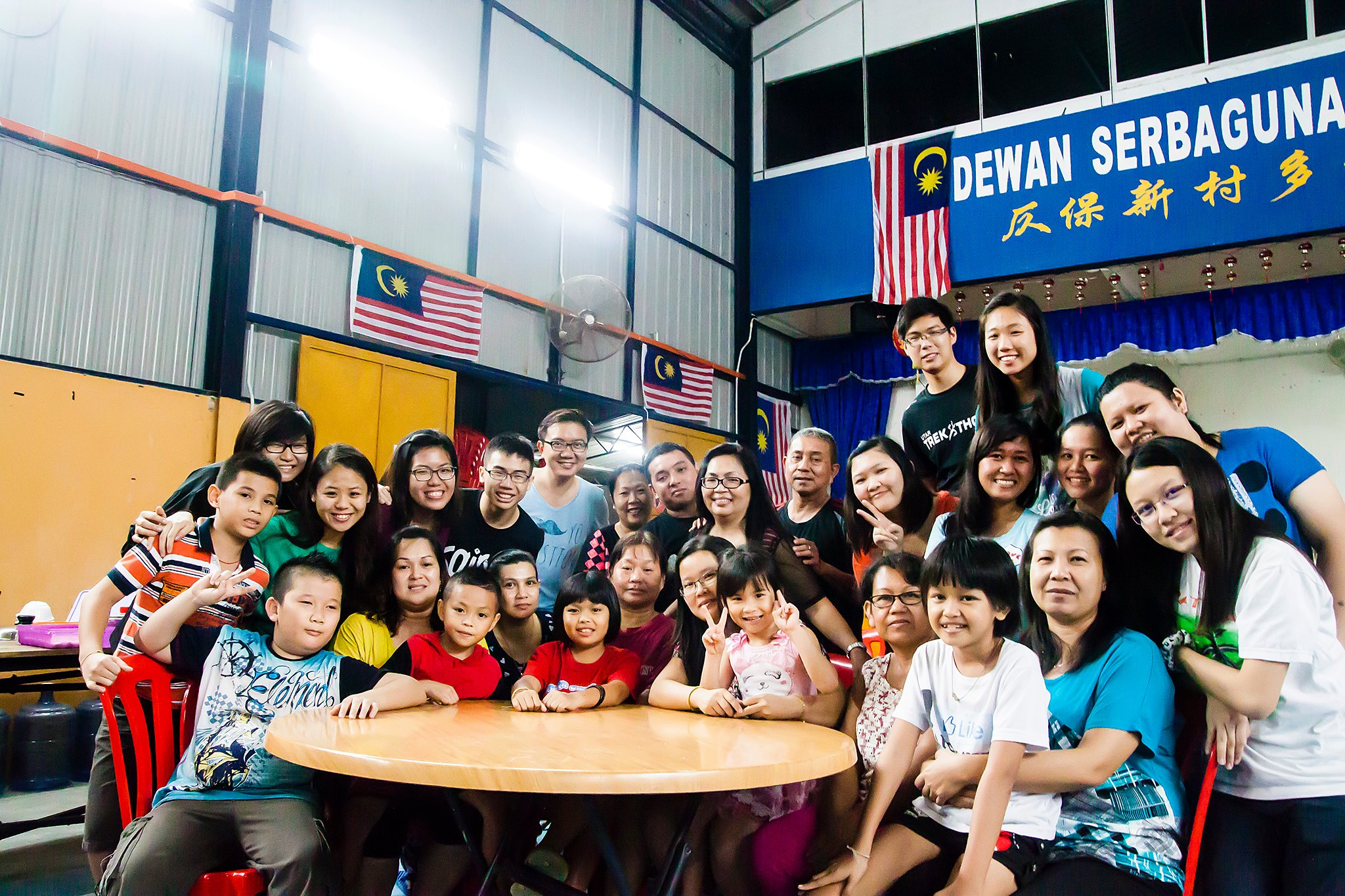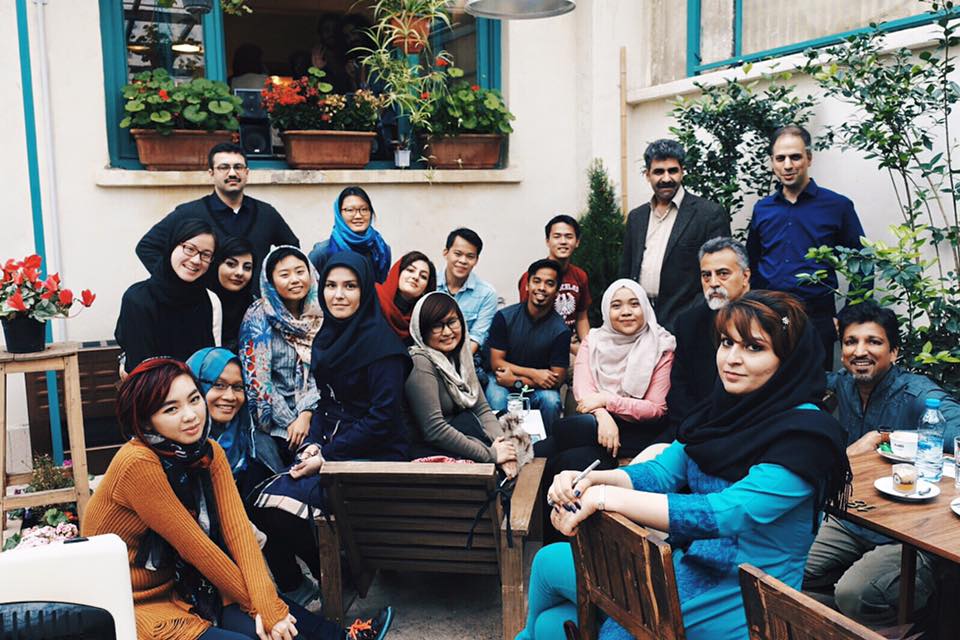Jessica Tan (Communications and New Media + USP, Class of 2016)
Curious Again
Jessica stretched her time as a student in USP. Her colourful USP footprint include being the Chief Ambassador of the USP Ambassadors, an organising committee member and tutor of Connect Tuition, the Deputy Director of Public Relations in the University Scholars Club, and a fellow in the Chua Thian Poh Community Leadership Programme. Awarded the Joanna Wong Gold Medal Award for the Class of 2016, Jessica was recognised for her academic excellence and contribution to the USP community. In the interview below, Jessica shares her thoughts on USP and why it has made her curious again.

Jessica (sitted) bringing Minister Ong Ye Kung (center) around on his visit to USP.
Being Fascinated
What strikes you about the USP classes?
The USP professors let you explore whichever topics you are interested in while giving you sufficient guidance along the way. They do not spoon feed you when you run into road blocks. Instead, they ask you questions which nudge you to reflect and search for the answers on your own. They are also affirmative when you are on the right track. I think that this fosters the kind of independent thinking that is required for academic pursuit.
How about being an Arts student taking Science modules?
In my third year, I took a USP Science & Technology module called “Computer Science and the IT Revolution”. The instructor, A/P Leong Hon Wai, understood that every student came from varying backgrounds. He shaped his curriculum and teaching style such that it was more comprehensible everyone – I remember him using origami to illustrate the basic steps of computing! As an interdisciplinary class, there were some students who had some background in computing and it was easy to approach them for help. This applies to other USP modules as well, where we can easily consult one another to share our expertise across disciplines.
Keeping the Wildness
How about the Conversations you had?
Other than activities such as steamboats and block catching, I think residential life is also about the conversations that take place with the people here, from the dining hall to the corridors. When Minister Ong Ye Kung came to our college for a dialogue session, my suitemates and I continued the conversation after he left and debated till 3am in the morning about some of the issues he raised. Residential college is not just about fun, but also about peer-to-peer learning as well.
And you were interested in bringing Research to life in the community?
I was involved in a community programme known as Connect Tuition. Every week, we brought children from the Dover interim rental housing into Cinnamon College to have dinner and also taught them tuition. Connect Tuition is very special as it originated from a research project conducted by a group of seniors. They conceptualised Connect Tuition after realising that there were some community needs which directly matched the resources held by USP students. It was only through this that I fully realised the importance of applied research. Research informs us of the gaps that needed to be plugged and also pushes the limits of what needs to be done. Research provides us with the confidence for application.

Jessica (right) with her tutee from Connect Tuition.
Opening my Mind
What is different about USP International Programmes?
There are plenty of international programmes in USP, but it is the places they send students to which make them unique. USP reaches not just the popular places, but also countries such as Iran and Turkey. I personally had the chance to visit Tehran, Iran in my final year! USP international programmes also require you to approach issues with an academic perspective. One of my most memorable USP trips is to Kelantan, Malaysia led by A/P Albert Teo. On this ethnography trip, I was taught the necessity of keeping an open mind, instead of assuming that a community has certain needs or subscribes to a certain culture. I got to apply what I learnt in class by carrying out research in a real life community that has limited access to the outside world.

Jessica (left) and the villagers from Kampong Chepa in Kelantan, Malaysia.

Jessica (center, with loose shawl) on a USP International Programme, Civilisation of Iran, to Tehran, Iran.
Curious Again…?
Why Curious Again?
USP has made me unafraid to explore again. When I was young, I used to be very curious about everything. However, as I grew older, I became more structured in my learning. Like many around me, I wanted to find the best answers to everything and stopped asking questions out of curiosity.
If I were to describe USP, I will describe it as a playground. Be it academics, community life, or contributing to the society, there is a lot of support provided in USP and we are given a lot of freedom to explore what we want. You can always find something that you are interested in, and find people who share the same passion. Even if they do not share same passion as you initially, they are always open to explore. USP was the environment I needed to open up and be reminded of how important it is to always stay curious. Thank you USP, for making me curious again.
Jessica is currently working in the Strategic Planning Division of SkillsFuture Singapore, a new statutory board under MOE. She also volunteers with a non-profit organisation, Trybe, in their youth character development programmes.

